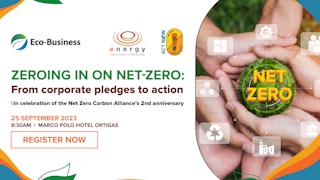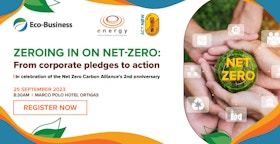
The Philippines – along with the rest of the world – will likely remember 2023 as a year that broke multiple temperature records.
On 24 May, the calculated heat index, or how hot the weather feels when humidity is factored in, reached 53 degrees Celsius in San Jose town in Occidental Mindoro. This surpassed the previous high of 50 degrees Celsius seen only a week prior in Legazpi, Albay – dwarfing the already sweltering 49 degrees Celsius registered in Butuan City in Agusan Del Norte. School hours were shortened in cities like Davao and Metro Manila to prevent exposing students to the extreme heat. In April, 150 students at a Manila secondary school suffered from heat stroke-related symptoms due to a power outage. Seven students fainted and two were hospitalised. Experts caution that these temperatures are already a threat to mankind.
These aren’t isolated incidents. Rising temperatures and sea levels, drought, stronger typhoons, and dangerous floods are happening planet-wide, and far from enough is being done. In fact, energy-related carbon emissions increased by 6 per cent in 2021, reaching the highest levels ever. At current rates, global sea levels are forecast to rise up to 60 centimeters by the next century, with drought expected to displace 700 million people by the next decade. Climate-induced disasters, in general, are set to take place more frequently within this decade alone.
It is now critical for the planet to work as one to mitigate the impact of global warming and limit the global temperature rise to below 1.5 degree Celsius, in line with the Paris Agreement.
While a significant portion of the global economy has committed to reaching net-zero emissions, emissions reduction data is still marred with inaccuracies and inconsistencies, exposing net-zero commitments to potential greenwash.
There is therefore a greater need for deep decarbonisation strategies that are validated by science, and for increased investments in nature-based solutions, especially from the private sector. For hard-to-abate sectors, carbon offsets have been proposed as a viable measure, but unverifiable offset schemes and scandals involving companies that provide carbon offsets continue to raise concerns.
While large corporations are believed to emit the most carbon emissions, it is estimated that over 80 per cent of their emissions are derived from the micro, small, and medium-sized enterprises (MSMEs) in their supply chains. This means that global value chains are critical in achieving decarbonisation targets.
The Net Zero Carbon Alliance, an initiative by Energy Development Corporation, the world’s largest vertically integrated geothermal power producer, aims to engage with corporations in the Philippines to achieve net-zero emissions aligned with the Philippines’ Nationally Determined Contribution (NDC) of up to 72.29 per cent conditional emissions reduction by 2030. But the road to net-zero carbon emissions for every company is anything but straightforward.
What are the challenges and opportunities for Philippine corporations embarking on a net-zero journey? What solutions are available for hard-to-abate and carbon-intensive sectors? How can finance be catalysed to help MSMEs set and meet emissions reduction targets?
This year’s NZCA Conference will attempt to answer these questions and highlight solutions to accelerate the Philippines’ private sector net-zero journey, from promises to action.
Publish your content with EB Publishing
It's about who you reach. Get your news, events, jobs and thought leadership seen by those who matter to you.




